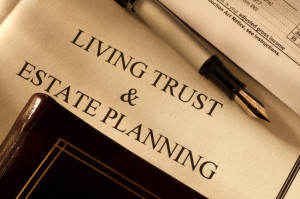“In preparing for battle I have always found that plans are useless, but planning is indispensable.”
Dwight Eisenhower
Mention the phrase ‘estate plan’ and the immediate answer is to associate the term with someone with a considerable amount of wealth.
You may think, I don’t need an estate plan because my meager possessions pale in comparison to someone like Warren Buffett or Bill Gates. Ask yourself this: Do you have a home? A car? A retirement plan? Then you have an estate. No matter how large or how modest, everyone has an estate. And, believe it or not, you have someone in common with Gates and Buffett: You can’t take it with you when you die.
According to Caring.com, 4 in 10 Americans, or 42 percent, do not have any sort of estate planning. Here’s something else to think about: 55 percent of Americans die without a will or an estate plan.
People devote more time to planning a vacation, choosing a car to buy, or deciding which restaurant to dine at tonight than they do estate planning. But without estate planning, you can’t choose who gets everything for which you worked so hard.
What do I need to do to remedy this problem? Where do I start? Let’s start at the beginning.
What is an estate plan? In layman’s terms, an estate plan is the act of preparing for the transfer of a person’s wealth and assets after his death. Assets, life insurance, pensions, real estate, cars, personal belongings and debts are all part of one’s estate.
Without a plan in place, settling your affairs after you go could have a long-lasting, and costly, impact on your loved ones, even if you don’t have a nice home, large IRA, or valuable art to pass on.
Having a comprehensive estate plan in place can help you feel more confident about the future and know that your loved ones will be taken care of. It also can help you achieve a variety of goals and objectives, including:
- Providing support and financial stability for your spouse
- Preserving assets for future generations
- Ensuring all of your assets will be distributed according to your wishes
But most importantly, it will provide you with peace of mind.
What does estate planning include? Three key components make up a basic estate plan: Financial Power of Attorney (POA), a health care POA and a last will. The cornerstone of any estate plan is the POA, which will include two parts, the financial and health care. These two documents communicate wishes regarding one’s financial and healthcare decisions.
The financial POA gives another party the legal authority to act on one’s behalf in order to manage legal and financial affairs when a loved one no longer can. For example, you suffer a fall and end up in the hospital and rehab. While you’re recuperating, you still have bills that need to be paid. Your financial POA can step in and make sure that happens.
The health care POA specifies a choice for medical treatment when one is no longer able to communicate or provide consent. It also allows for someone to be designated to make health care decisions when an individual is no longer able to do so.
Finally, there is the last will and testament, which is a legal document which allows you to control how your estate will be distributed after you pass. Or more simply, who gets your stuff after you’re dead.
When creating a last will and testament, you will need to appoint an executor who will administer the estate and is responsible for collecting the assets of the estate, paying any debts of the estate, paying state and federal taxes and then distributing the assets of the estate in accordance with the direction of a will. When selecting an executor, ensure that this person can be trusted and will be able to handle financial matters prudently.
In order to maintain a valid will, your will should be updated when certain events happen. Life changes, and those changes need to be reflected in your will. Got married or divorced? Need to add or remove a beneficiary? Those changes need to be reflected in your updated will.
After those three components are in place, you might want to consider expanding on your plan ala carte. An additional component to your estate plan would include a living trust. If you hold your property in a living trust, your survivors won’t have to go through probate court, a time-consuming and expensive process.
You also may consider setting money aside via a prepaid funeral trust so your family won’t be burdened into finding ways to pay for your funeral and related expenses when the time comes.
After your plan is created, don’t keep it a secret. Tell your family members where they can find it and other important documents when the need arises.
If you are hesitant to create an estate plan, you are not alone. Individuals put off estate planning because they think they don’t own enough, they’re not old enough, they’re busy, think they have plenty of time, they’re confused and don’t know who can help them, or they just don’t want to think about it. We procrastinate, and that’s normal.
Then, when something happens to them, their families have to pick up the pieces.
The benefits of having estate planning in place far outweigh the cost or inconvenience of creating one. It’s better to be prepared and make sure your loved ones are properly taken care of than to die without a will. You do not want to be forced into the process by tragedy or crisis and you do not want to be left without proper planning when it becomes necessary.




